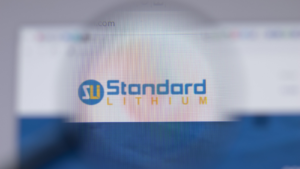
Under-the-radar penny stocks can be some of the most rewarding investments on the market. Look at ACADIA Pharmaceuticals (NASDAQ:ACAD), for example.
Back in 2011, the biotech was just developing its treatment of Parkinson’s disease psychosis and traded at just 70 cents. By 2015, it was at $51.24.
Or, look at Advanced Micro Devices (NASDAQ:AMD). In 2015, it traded at about $1.99. Today, thanks to the artificial intelligence and semiconductor boom, it hit a hit of $214.81.
Each had incredible growth stories that sent them to the moon. And while similar stories and potential wins exist like those today, there’s a lot of garbage to dig through. Plus, there’s a good deal of risk. It’s why the US SEC warns:
“Penny stocks may trade infrequently — which means that it may be difficult to sell penny stock shares once you have them. Because it may also be difficult to find quotations for penny stocks, they may be impossible to accurately price. Investors in penny stock[s] should be prepared for the possibility that they may lose their whole investment.”
However, as long as you understand the risks, and won’t risk the house on a penny stock, here are three you may want to consider today.
Cresco Labs (CRLBF)

With substantial catalysts ahead, keep an eye on under-the-radar penny stocks, like Cresco Labs (OTCMKTS:CRLBF). The company, which cultivates, manufactures, and sells retail and medical cannabis products in the United States, watched its stock soar from about $1.31 to a recent high of $2.60.
Now back to $2.06, it could push aggressively higher with rescheduling, potential positive mentions heading into the U.S. elections, legalization in Germany – which could lead to a domino effect in Europe, and more U.S. states set to legalize. Even better, according to Pew Research, 88% of the U.S. public wants to see cannabis legalized.
While we’ll learn more about what’s happening with Cresco with earnings on May 15, we do know the fourth quarter was good to the company. In fact, the company earned $4.87 million in the quarter. A year-earlier, it posted a loss of $180.62 million. Also, while its revenue fell to $188.24 million from $199.58 million, it still beat estimates for $181.7 million.
Atossa Genetics (ATOS)

The first time I mentioned Atossa Genetics (NASDAQ:ATOS), it traded at 75 cents on April 4, 2023. From there, it hit a high of $1.91 a year later.
Now back to $1.68, it’s still a strong buy. Helping, the company just posted encouraging data from a Phase 2 study of its drug (Z)-endoxifen as a neoadjuvant treatment for breast cancer. At the moment, it’s being tested as a treatment for “premenopausal women with Grade 1 or 2 ER+/HER2- breast cancer,” as noted by Seeking Alpha.
“The 40mg EVANGELINE data is extremely encouraging as it shows that (Z)-endoxifen can not only stop ER+ breast cancer from growing, but it can also shrink or eliminate the tumor, as measured by MRI imaging,” said Dr. Steven Quay, Atossa’s President and Chief Executive Officer in a recent press release.
If ATOS can produce further, positive trial data, it could triple from its current price of $1.68.
Standard Lithium (SLI)

With lithium prices showing signs of bottoming out, keep an eye on under-the-radar penny stocks like Standard Lithium (NYSEAMERICAN:SLI).
As I noted on May 2, “Analysts at Fastmarkets say demand for lithium in the U.S. could grow by 487% to 412,000 tonnes by the time 2030 rolls around. Should that happen, a shortage of supply coupled with explosive demand will lead to another massive spike in lithium.”
Also, while its chart is nothing to write home about, that’s to be expected when lithium prices collapse 80% on oversupply issues. Helping, Standard Lithium just announced its partnership with Equinor to develop large scale lithium projects in the Smackover Formation of east Texas and southwest Arkansas.
Exxon Mobil (NYSE:XOM)is also operating in the region.
According to Exxon Mobil, it “acquired the rights to 120,000 gross acres of the Smackover formation in southern Arkansas – considered one of the most prolific lithium resources of its type in North America.”
On Penny Stocks and Low-Volume Stocks: With only the rarest exceptions, InvestorPlace does not publish commentary about companies that have a market cap of less than $100 million or trade less than 100,000 shares each day. That’s because these “penny stocks” are frequently the playground for scam artists and market manipulators. If we ever do publish commentary on a low-volume stock that may be affected by our commentary, we demand that InvestorPlace.com’s writers disclose this fact and warn readers of the risks.
Read More: Penny Stocks — How to Profit Without Getting Scammed
On the date of publication, Ian Cooper did not hold (either directly or indirectly) any positions in the securities mentioned. The opinions expressed in this article are those of the writer, subject to the InvestorPlace.com Publishing Guidelines.




